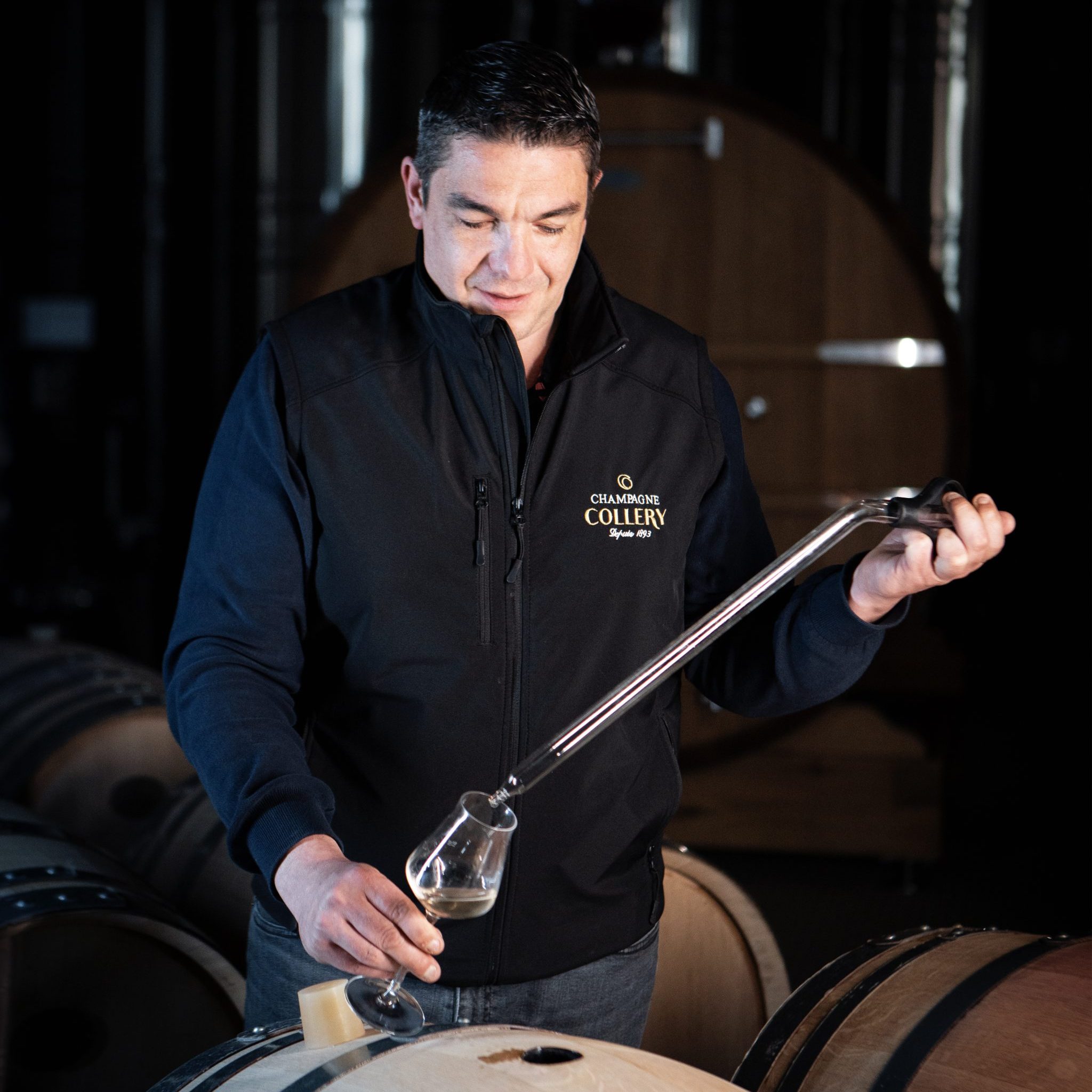On-Trade Off Colour
By db staff writerFearing economic uncertainty, we are likely to drink out less but buy more for home consumption; restaurants in the Southeast are suffering and the supermarkets pass their problems on to suppliers. Joanne Hart reports
THE UK ECONOMY grew by 1.8% last year, more vigorously than the economies of either the US or the rest of Europe. Inflation was 2.3% and unemployment was just 5%, almost half that recorded in the EU.
This year, the economy is expected to grow by up to 2.5%, inflation is forecast to remain stable and the number of people claiming benefit is scheduled to shrink. All in all, Britain is in comparatively good shape. That iswhat Chancellor Gordon Brown told us in his Budget last month and that is what we are supposed to believe.
For many people, however, the state of the economy does not feel nearly so rosy. In fact, more people are preoccupied by job security than they have been in years. They are worried about retaining their job, finding a new one if they lose the one they have and maintaining salary momentum.
There is an atmosphere of anxiety and many economists are predicting that bad times are just around the corner. Economic downturns have a multi-layered effect, and the wine trade is one of those industries that tends to get caught in the middle.
"There is a North/South split in favour of the North," says Commerzbank chief economist Nick Parsons. "Anything that comes close to the City is in a desperate state and the overall impact of this is being underestimated. If house prices are going up by 21% in the North, that may sound good, but the absolute values are much lower than in the South, so wealth creation is less.
"Additionally, if someone in the City loses their job, the multiplier effect is huge because they tend to employ nannies, cleaners, gardeners, personal trainers, dog walkers and the like. If a supermarket creates thousands of jobs, the number of people out of work may go down but the impact on the wider economy is pretty minimal," he adds.
City people and their ilk do not just employ staff to enhance their personal life, they also go out on a regular basis. It is perhaps not surprising, therefore, that restaurants and bars in the Southeast are experiencing problems and that these are hitting the wine trade.
"People are worried about Iraq, their jobs, their prospects and their houses. In London the congestion charge is also having an effect and the combination of everything has led to a pretty dramatic drop in business," says Willy Lebus, trade sales director at Bibendum. "The most popular restaurants are fine but lots of others are struggling," he explains.
The impact of these trends upon the industry has resulted in three major changes: the number of people eating out has fallen; the amount of wine they are drinking has fallen and the sort of wine they are drinking has changed.
Gerard Lyons, chief economist at Standard Chartered, echoes this view. "People cut discretionary spending when they are nervous. Restaurants and drinking in restaurants count as discretionary spending," he says.
This is particularly so because a significant amount of eating out, particularly in the Southeast, has been expense accountdriven. Corporations are no longer as generous with their cheque books and are not likely to look kindly on bills that include several bottles of fine wine.
In the year to February, the on-trade sold 16.5m cases of wine, compared to 14.9m the previous year and 13.1m the year before that. Growth has been substantial but many believe it will not continue. "The pace of expansion in the on-trade will slow," believes Peter Darbyshire, managing director of wine distributor Thierry’s.
Not everyone is pessimistic however. Jerry Lockspeiser, founder and chairman of Bottle Green, maintains that there has been a fundamental shift in British cultural behaviour that should protect the wine trade from the worst ravages of any recession or downturn that befalls the country.
Partner Content
"There has been a big growth in café society," Lockspeiser says. "People are spending more on lifestyle enjoyment, like the Spanish, French and Italians do. Also, wine is much more accessible than it used to be, so people drink a lot more of it. That being said, if there is a big economic downturn, the usual pattern will emerge – the on-trade will suffer more and the supermarkets will be all right," he says.
Evidence on the ground backs up this thesis. The supermarket sector’s penetration of the off-trade has been one of the big wine stories of the past decade. The major food retailers now sell more than 70% of all wine drunk in Britain and their dominance shows no sign of diminishing.
Northern-based Morrisons is sanguine about its prospects and says it has not detected any downturn in business over recent months. Alan Webb, general manager of beer, wine and spirits at a Southern-based Sainsbury’s, also reports that business is booming. "We can’t detect any turn down in sales. If anything, people are trading up. They are influenced by what is put in front of them and we are making more interesting wines more accessible," he says.
At Sainsbury’s, the average bottle of wine sold now costs over £4. Even though the supermarket has a reputation for being more upmarket than rivals, this is still significant, given that the vast majority of consumers have traditionally been reluctant to part with more than £3.99 for a bottle of wine.
Even Webb is concerned about the future, however. "We are cautious. We have not been hit yet but that is not to say we won’t be. The Chancellor has been taking money out of people’s pockets. The rise in National Insurance contributions has not bitten yet but it may well," he explains.
Webb points out, though, that the on-trade is impacted far more when consumers feel less wealthy. "In 1992, at the time of the last recession, the total market slowed down but there was some switching. People drank out less but they bought more for home consumption," he says.
In the year to 2003, the off-trade sold 69.5m cases of wine, a rise of almost 6% year on year. Most experts expect steady growth this year, too, but they all concede that pricing is a growing problem. "Trade is very tight in terms of margins. Asda is putting the squeeze on prices and that is filtering through to other retailers," says Quentin Rappoport, director of the Wine & Spirit Association.
"There is an oversupply of wine and this will continue. It will have an ongoing impact on prices," says Sandy Soames of City stockbrokers Cazenove. Thierrys’ Darbyshire believes the situation will persist for years. "Wine producers from the significant wine-growing countries are going to be in surplus for the next five years. There will be lots of downward pressure on prices," he says.
Supermarket promotional activity shows no sign of easing and may well increase if the economic environment becomes tougher. Industry pundits describe it as "commercial suicide" for the producers but admit that there are always going to be some suppliers prepared to do it to gain sales and improve recognition of their wines. This is great news for consumers and should help to protect volume growth whatever the economic climate.
Chancellor Gordon Brown raised a smile in his Budget speech when he once again avoided any increase on spirits duty and only increased the duty on wine at the rate of inflation. The fortunes of the wine trade will barely be affected by restraint in this particular area. The external environment is far more important and overall prospects remain uncertain.
And uncertainty breeds caution. The impact of this uncertainty is already being felt, particularly among restaurateurs in central London. Elsewhere in the on-trade, the future is looking more mixed although consumers’ total expenditure on wine is likely to come down.
Supermarkets and off-licences are more resilient. At the end of the day, they can always squeeze their suppliers.




